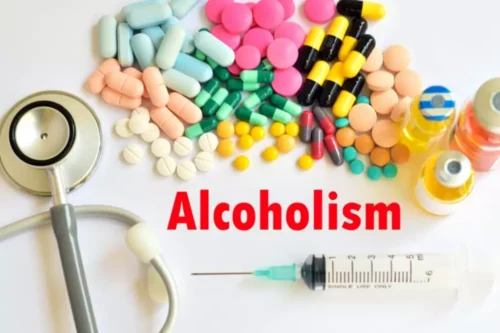
Prioritizing self-care and setting boundaries that prioritize our needs and happiness are paramount in maintaining our emotional health. Seeking support from therapists or support groups can provide valuable insights and coping strategies. Furthermore, those with BPD frequently exhibit intense and tumultuous relationships with others, marked by cycles of idealization and devaluation. These individuals may also struggle with a sense of self, developing a ‘false self’ to cope with their internal turmoil. Additionally, individuals with BPD commonly grapple with low self-esteem, which can further exacerbate their challenges in interpersonal dynamics.

What Is the Difference Between Communal and Covert Narcissist?

Narcissists often seek validation and admiration, which borderlines, in their vulnerability, readily provide. Understanding these triggers can provide insight into the complex world of a covert narcissist. It’s essential to remain calm, assert boundaries, and seek support from trusted individuals to navigate such interactions effectively. Their gratification may be indirect through their emotional investment in someone they admire. They take things personally and feel distrustful, mistreated, unappreciated, and misunderstood.
Contrasting with the Exhibitionist Narcissist

When they receive a critique instead of admiration, they can take it pretty hard. Although it is a relatively new phenomenon, social media addiction has been around since the advent of sharing pictures and status updates online. It’s essential to prioritize self-care by engaging https://ecosoberhouse.com/ in activities that promote joy and relaxation, helping to restore a sense of balance and well-being. Just like a delicate dance between two partners, finding balance and harmony in such a relationship requires patience, self-awareness, and a willingness to grow together.
What Do Covert Narcissists Do in Relationships?

Understanding these dynamics can help in recognizing and addressing such harmful connections. Loss of control or power in any situation is a blow to their carefully constructed facade. They might employ subtle tactics to undermine the credibility of the person confronting them, such as using passive-aggressive comments or projecting their faults onto others. covert narcissism and alcoholism Get the help you need from a therapist near you–a FREE service from Psychology Today. Yet, despite the fact that they may appear to genuinely care for others, they’re motivated by a need for recognition, power over others, or egoistic pride. They behave self-righteously superior, moralistic, or like an exploited, resentful sufferer for all their giving.
- A mental health professional can help you diagnose and treat any underlying mental health disorders that may be contributing to your alcoholism and narcissism.
- Narcissistic personality disorder is just one of several personality disorders that can be dually diagnosed with alcoholism.
After the breakup, prioritize your mental health by practicing self-compassion, seeking professional help, and surrounding yourself with a supportive network. Stay informed about narcissism, be patient with your healing process, and remember to embrace self-compassion. By taking these steps, seeking therapy, practicing self-care, and setting firm boundaries, you can successfully rebuild your life after leaving a covert narcissistic relationship. Remember, you deserve to move forward and create a brighter future for yourself. Utilizing effective communication strategies can be instrumental in navigating interactions with covert narcissist alcoholics.
Can alcoholism cause narcissistic personality disorder?
Narcissism, contrary to popular belief, isn’t simply about loving oneself too much. It’s a complex personality trait that, in its extreme form, manifests as Narcissistic Personality Disorder (NPD). Think of it as wearing a mask – a carefully crafted persona designed to project an image of perfection, superiority, and invulnerability. But beneath this mask often lies a fragile ego, desperately seeking admiration and validation from others. This intricate connection between narcissism and addiction is a complex tapestry woven with threads of ego, vulnerability, and an insatiable hunger for external validation. It’s a relationship that’s as fascinating as it is troubling, revealing the depths of human psychology and the fragility of the human psyche.
Co-Occuring Conditions in Covert Narcissism
On the other hand, the term “alcoholic” describes someone who has an alcohol use disorder (AUD), which is the clinical term for an alcohol addiction. Very little research has been conducted specifically on narcissism’s effect on problem recognition or a person’s readiness to change. If you know someone who regularly uses alcohol, it’s possible that narcissism might be one of the influencing factors. Research supports the link between some narcissistic traits and alcohol use. These co-occurring mental health conditions can make it particularly challenging for clinicians, let alone friends and family, to pinpoint where the problems stem from. This article discusses covert narcissist traits and how to handle someone who has them.
Emotional Neglect
- One of the ways covert narcissists may express this resentment is by using silent treatment.
- Following alcohol guidelines can help people stay within moderate levels of alcohol consumption.
- This might involve specialized therapy techniques that challenge the narcissist’s distorted self-image while building genuine self-esteem.
- Plan your exit strategy by assessing safety, gathering necessary documents, securing a support system, creating a financial plan, setting boundaries, seeking legal advice, and prioritizing self-care.
- The intent of giving for a covert narcissist is always more about them and less about those to whom they are giving.
- Seeking professional help for managing these tendencies is crucial for maintaining a healthy lifestyle.
- Emotional dysregulation or difficulty controlling emotions may be one of the reasons.
- Allow yourself to feel your emotions without judgment and prioritize self-care activities that nurture your well-being.
- It seems that many people who have NPD might also have AUD, but it’s not clear why.